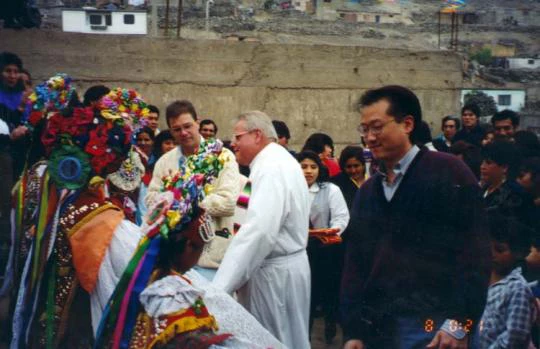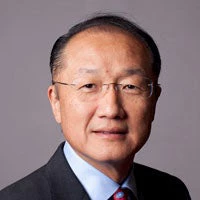
Photo: Jim Yong Kim with Father Jack in Peru
When I turned 22, I was struggling a bit. I was just two months into my first year at Harvard Medical School, and I had gone from an undergraduate environment at Brown University where I was an activist with a diverse group of peers to a situation where I was memorizing anatomy out of a textbook each and every night. It seemed a real letdown.
Over the next months and years, I met fellow activists including Paul Farmer, with whom I co-founded Partners In Health, and that opened up new possibilities. A few years later, I entered a PhD program in anthropology. Both connected the lessons from medical school to real passions of mine.
When I was 22, one thing naturally led to another. Even so, I wish I knew then what I understand better now about preparing myself for the future. I have three suggestions that I wish someone had told me when I was younger.
First, begin working on your leadership skills.
You’re never too young to think about your role as a leader. There are “natural” aspects of leadership like charisma, emotional intelligence, and visionary thinking, but no single skill by itself will be enough to tackle the most complex and meaningful leadership challenges.
Leadership is not about being the head of a large organization. It’s about making groups more effective. And almost no matter what you do, better leadership skills will help.
Start now on a lifelong commitment to humbly listen to your co-workers and set yourself on a program to improve those things that will make a difference in accomplishing your goals. If there’s a way of getting some real feedback, start doing it right away.
Practitioners and scholars in the leadership field largely agree on the importance of 360 degree feedback. But don’t look at 360s as just a technique. The real skill in the 360 is to have the openness and humility to really listen to the way people respond to you.
Second, find out how other people live.
You should get to know people from every income level and understand their worlds. In my late 20s, I began an extraordinary experience of working in poor or disadvantaged communities, then in Haiti’s Central Plateau and later in a shantytown north of Lima and in prisons in Siberia.
In Haitian villages, people live on almost nothing; many are illiterate and have few opportunities for education or health care, not to mention finding a job that could support them and their families. But they are incredibly wise; you would be ignorant to underestimate them.
I remember one patient of Paul Farmer, my colleague, in Cange. She believed in the powers of sorcerers, through voodoo, and she had sought them out for a bad cough, which we later diagnosed as tuberculosis. In addition to receiving treatment through the voodoo practitioner, she also came into our clinic every day to take a cocktail of drugs that are necessary to treat and cure TB . One day, Paul asked her, “Why do you come every day if you believe in voodoo?”
The woman put her hands on her hips and said, “Honey, are you incapable of complexity?”
Be capable of complexity. Listen to the poor because their aspirations are as high as anyone’s and all of us will need to face the task of making the world more inclusive and just.
Third, understand the benefits of meditation, or other practices that will clear your mind and help you to be more effective and more compassionate.
Once you know the science, you’ll have additional motivation to find some sort of contemplative practice, such as yoga, meditation, or other mindfulness techniques, which will help you in a number of ways.
Scientists have found that long-term meditation can actually result in physical changes in the part of the brain associated with attention and sensory processing. Even periods of brief meditation, for instance, can improve mood, visuospatial processing, working memory, and executive functioning, and it can reduce fatigue and anxiety.
Whether you’re 22, 32, 42, or my age – 54 – I believe these lessons of working on your leadership skills, exploring how other people live, and incorporating some kind of contemplative practice in your routine will help you throughout your life.
This post first appeared in LinkedIn Influencers.


Join the Conversation